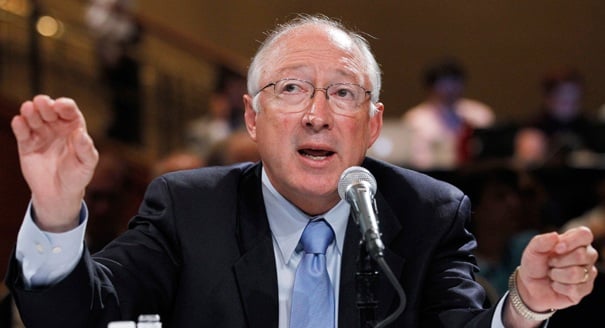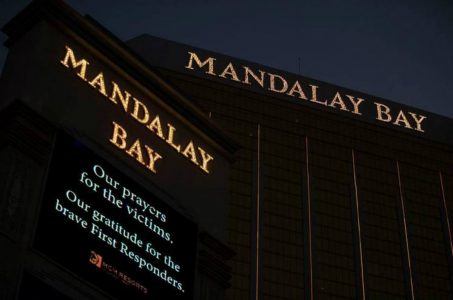Former US Secretary of the Interior Salazar Warns Connecticut Over Satellite Casino
Posted on: March 8, 2017, 03:00h.
Last updated on: March 8, 2017, 02:45h.
Kenneth Salazar, US Secretary to the Interior under Barack Obama, has warned Connecticut governor Dannel Malloy over “legal risks” concerning the state’s proposal to permit the construction of a tribal casino outside sovereign tribal lands.

Salazar, who is a paid up consultant for MGM Resorts International, informed the governor that the proposed “satellite” casino could jeopardize the state’s revenue-sharing agreements with the Mashantucket Pequots and Mohegans, which run the Foxwoods and Mohegan Casinos in south Connecticut, which could cost the state billions in the long run.
MGM is desperate to halt Connecticut’s plans to establish a casino just 13 miles south of the MGM Springfield, currently under construction across the border in Massachusetts.
The Connecticut casino has been conceived purely as a means to blunt MGM Springfield’s competitive edge against the Connecticut casino sector and to protect Connecticut jobs.
MGM has made no secret of the fact that it expects a large percentage of footfall for its own new casino to come from Connecticut residents.
Borderline Legal
The satellite casino is controversial plan because the Connecticut legislature would have to pass a law permitting the two tribes, known collectively as MMCT, to operate the state’s first ever casino outside tribal lands. The tribes are the only entities permitted by law to operate casinos in the state.
MGM has sued Connecticut on the grounds that this is unconstitutional and in violation of the Commerce Clause because it bars out-of-state rivals from competing to develop casinos in the state, discriminating, says MGM, in favor of the two tribes.
The casino giant even attempted to get an amendment added to a federal defense bill that would have prohibited Native American tribes from operating casinos in their home state outside their reservations but it was scuttled by vigilant congressman from Connecticut.
But the question of legality lingers, and last week Governor Malloy requested that the state AG George Jepsen prepare a formal opinion on the legal ramifications of the proposal and to assess the likelihood of MGM successfully blocking it in the courts.
Substantial Risk
Salazar’s intervention on behalf of MGM, then, is well-timed. Writing in an open letter addressed to Malloy, dated March 7, he writes that the 25 percent revenue share that has existed between the state and the tribes for two decades will be threatened, despite the fact that MMCT has proposed amendments to the agreements that would ensure the payments to the state would not stop.
“Under federal law … amendments to a tribal gaming compact require approval by the U.S. Department of Interior, which I led for five years during the Obama Administration,” wrote Salazar.
“Based on that experience (and on my work on Native American legal matters), I believe there is a substantial risk that the tribe’s proposed amendments would not receive the requisite approval, in which case Connecticut’s entitlement to the 25-percent revenue stream would likely terminate.”
AN MMCT spokesman was unmoved by the contents of the letter. “MGM is willing to pay anyone and everyone to stop our project from moving forward because they know our proposal is going to keep revenue and jobs in Connecticut,” he said.
Related News Articles
Most Popular
LOST VEGAS: The Foster Brooks Robot at MGM Grand
Bally’s Sets Date for Tropicana Las Vegas Implosion & Party
Most Commented
-
VEGAS MYTHS RE-BUSTED: You Don’t Have to Pay Resort Fees
— August 2, 2024 — 16 Comments -
VEGAS MYTHS RE-BUSTED: Elvis Was a Straight-Up Racist
— August 9, 2024 — 11 Comments -
ANTI-SOCIAL BEHAVIOR: Vegas Casino Buffet Stunt in Poor Taste Goes Viral
— August 16, 2024 — 7 Comments -
VEGAS MYTHS RE-BUSTED: The Strip Tried Appealing to Families and Failed
— August 23, 2024 — 7 Comments
















No comments yet